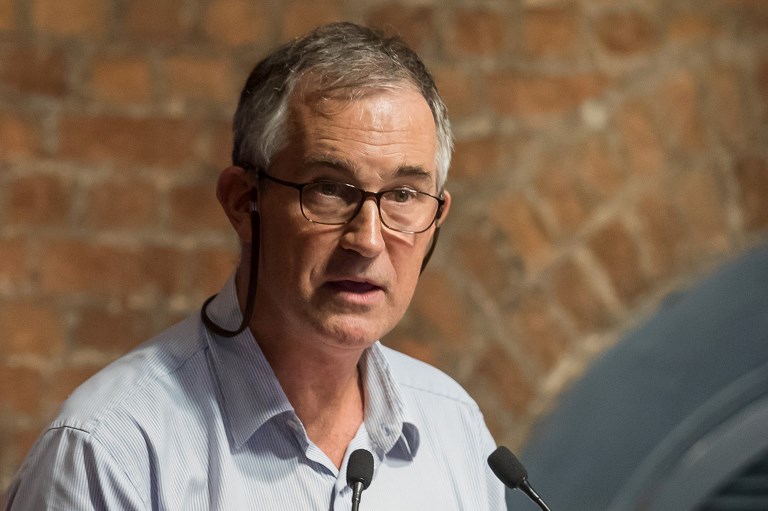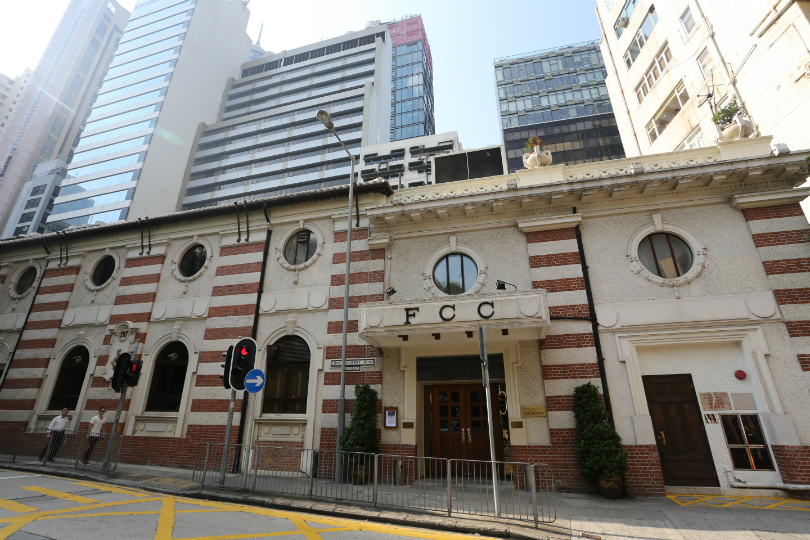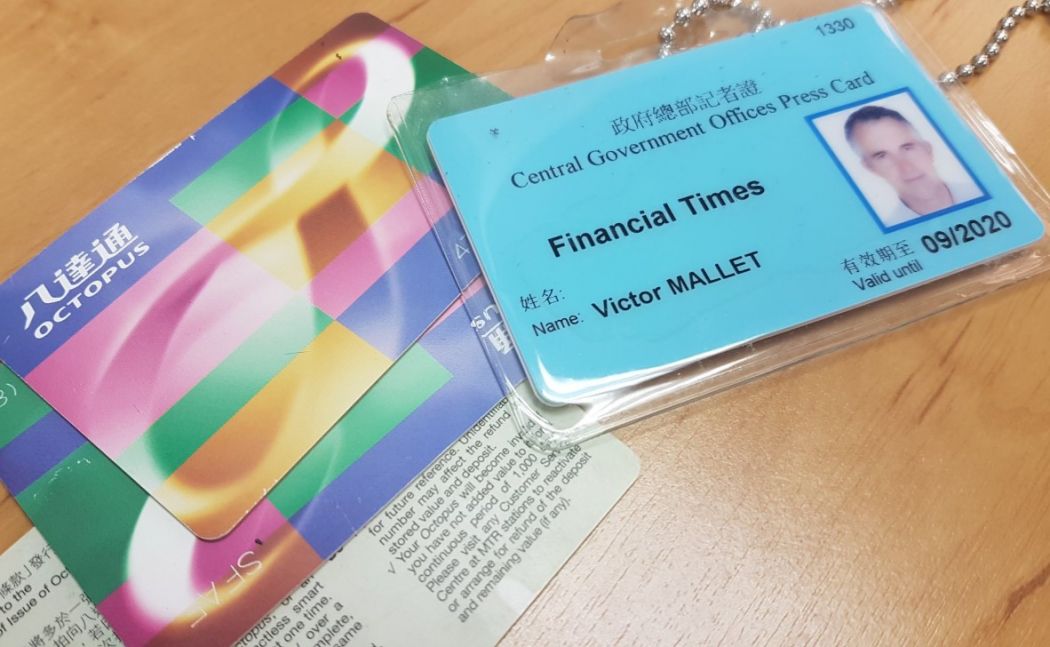The refusal to grant Financial Times Asia news editor Victor Mallet entry into Hong Kong poses a threat to free society, the Foreign Correspondents’ Club (FCC) of Hong Kong said on Friday.
“This action places journalists working in Hong Kong in an opaque environment in which fear and self-censorship may replace the freedom and confidence essential to a free society, and guaranteed by the Basic Law,” the club said.

According to the Financial Times, Mallet was refused entry into the city on Thursday, weeks after the government refused to renew his work visa. He had attempted to enter as a visitor to hand over his duties as editor but was turned away by immigration officers. British citizens can usually visit Hong Kong for 180 days.
Mallet, a British national, was also the vice-president of the FCC before his expulsion earlier this year. He had chaired a talk by pro-independence activist Andy Chan at the club in August, despite efforts by Chinese officials to block the event. Chan’s Hong Kong National Party was since banned.
‘Shocked and baffled’
The club said that it was “shocked and baffled” by the decision, adding: “The FCC is now reiterating its demand for an immediate explanation for this aggravated and disproportionate sanction that seems completely unfounded.”

A British Consulate-General spokesperson also said that the government was concerned about Mallet’s refusal of entry: “He is yet to receive any reason for the visa and entry refusals… We remain very concerned by the authorities’ unprecedented rejection of a visa for a senior British journalist, which undermines Hong Kong’s freedom of speech and freedom of the press.”
The UK Minister of State for Asia, Mark Field, arrived in Hong Kong for a scheduled visit on Friday. Field met with the Financial Times Asia Bureau Chief, Jamil Anderlini, and expressed concern over tightening freedoms in the city.
Good to see FT Asia Editor @JamilAnderlini. UK remains very concerned by non-renewal of Victor Mallet’s visa and his denial of entry yesterday. Undermines freedom of speech and freedom of the press, both guaranteed by the Joint Declaration and the Basic Law. pic.twitter.com/AzfJjpVlZv
— Mark Field (@MarkFieldUK) November 9, 2018
Secretary for Security John Lee said he will not comment on individual cases, and the Immigration Department made the decision in accordance with the law and the prevailing immigration policy: “This case has nothing to do with freedom of expression or freedom of the press,” he said. “Full disclosure of details may prejudice immigration policy as a whole.”
Pro-Beijing lawmaker Gary Chan said he stood by the government’s decision to bar Mallet. He claimed Mallet was “trying to break through the barricade” in entering Hong Kong: “We believe his intention was clearly not purely tourism in Hong Kong, but intentionally politicising the case,” he said.

In a social media post leaked to HKFP, Mallet said he had intended to enter Hong Kong to bid farewell to colleagues and friends, attend Literary Festival Events, cash in his Octopus card and pay his taxes, visit the Foreign Correspondents’ Club and sail in the Round the Island race.
He added that, instead, he will be moving to Europe and re-reading George Orwell’s dystopian classic 1984.
‘Strongest condemnation’
A group of 24 pro-democracy lawmakers said in a joint statement that they were shocked and angered by the incident: “The Carrie Lam government has taken all measures to make the incident bigger and bigger, to tell the international world that Hong Kong is a puppet government of Beijing’s. We express our strongest condemnation,” they said.
They added the incident will only further harm Hong Kong’s status as an international city, preventing foreign investments from coming in. They demanded the Hong Kong government explain and apologise.
A spokesperson for the EU Office to Hong Kong and Macao said: “The decision by the Hong Kong authorities to refuse entry to the Financial Times Asia news editor, Victor Mallet, deepens our concerns regarding freedom of the press and expression in Hong Kong. The EU issued a spokesperson’s statement on the 8th of October regarding the refusal to renew Mallet’s work visa. In the absence of a credible explanation, both decisions appear to be politically motivated and damage Hong Kong’s international standing and the trust in the ‘one country, two systems’ principle.”
Seventeen former presidents of the Foreign Correspondents’ Club sent a letter to Chief Executive Carrie Lam on Thursday, saying that an explanation was needed for the visa denial and for tightening controls on freedom of expression in the city.
17 former presidents of the Foreign Correspondents Club have sent a letter to HK Chief Executive Carrie Lam, asking for a public explanation for the visa denial of Financial Times Asia news editor Victor Mallet, & asking if the SAR government will continue to respect free speech. pic.twitter.com/PKYmDhZpO3
— Keith Richburg (@keithrichburg) November 8, 2018
The statement came after Tai Kwun cancelled two events by exiled Chinese writer Ma Jian on Thursday, saying that the art space cannot be used as a political platform. The author is set to land in Hong Kong on Friday.
The Hong Kong Journalists Association said that the cancellation further undermines freedom of speech and expression in Hong Kong: “We oppose any threats from any persons, organisations and governments against freedom of speech and expression,” they said.
Additional reporting by Kris Cheng.
